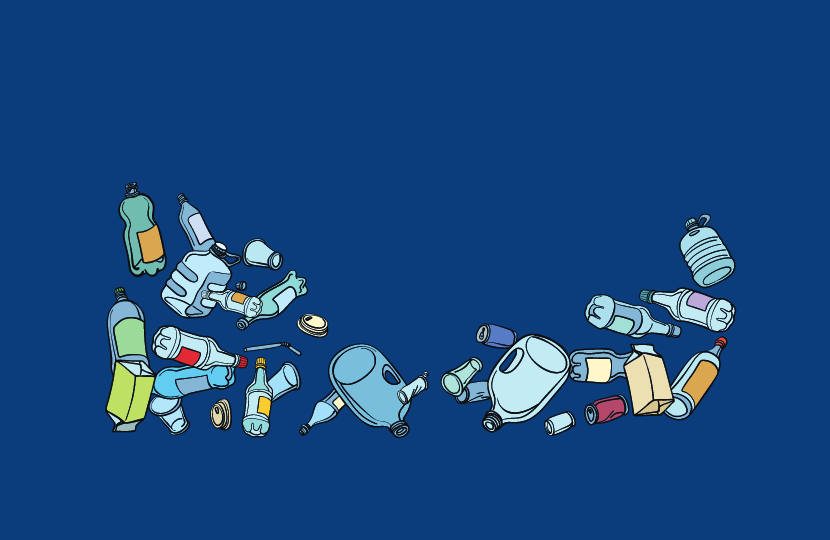
A number of constituents have contacted me regarding the Plastic Crisis campaign.
Anyone, who has watched programmes like David Attenborough’s Blue Planet will have been shocked to see the scale of devastation and pollution caused to our global environment by plastic waste. There can be no doubt about the urgency with which this issue needs to be addressed.
If we don’t act now to reduce demand, it is estimated that 34 billion tonnes of plastic will have been manufactured globally by 2050. The Resources and Waste Strategy sets out plans to reduce, reuse, and recycle more plastic than we do now. The target is to eliminate all avoidable plastic waste throughout the life of the Government's 25 Year Environment Plan, but for the most problematic plastics, ministers are aiming higher and have committed to work towards all plastic packaging placed on the market being recyclable, reusable or compostable by 2025.
To keep products in circulation for longer, ministers are taking steps through the Environment Bill to require products to be designed to be durable, repairable, and recyclable, as well as legislating for the use of extended producer responsibility schemes in a way that incentivises more resource efficient design. The Bill also includes powers to enable other commitments to be delivered which will improve the quantity and quality of the materials we recycle. These include commitments to implement a Deposit Return Scheme for drinks containers and the introduction of consistent recycling collections across the country.
Furthermore, ministerial colleagues have announced key details of the world-leading Plastic Packaging Tax. The initial rate of the tax will be £200 per tonne and it will be paid by manufacturers and importers of plastic packaging that contains less than 30 percent recycled plastic. Building on the microbeads ban, restrictions on the supply of plastic straws, drinks stirrers and cotton buds came into force on 1st October 2020, with exemptions to ensure that those with medical needs or a disability can continue to access plastic straws. Finally, since the plastic bag charge was first introduced in 2015, the Government has successfully prevented billions of plastic bags being sold and ending up in the ocean and environment. This charge has now been increased to 10p and extended to all retailers. It is anticipated that this extension will decrease the use of single-use carrier bags by 70-80 percent in small and medium-sized businesses.
The Government has now published the summary of responses to the consultation on the detailed design and implementation of the Plastic Packaging Tax. Alongside the summary of responses to the consultation, draft legislation for the Plastic Packaging Tax was also published. I know that the Government will continue to engage with businesses involved in the manufacture and import of plastic packaging to ensure the legislation is fit for purpose and the tax can be successfully introduced in April 2022.
Further reading: Government’s 25 Year Environment Plan


